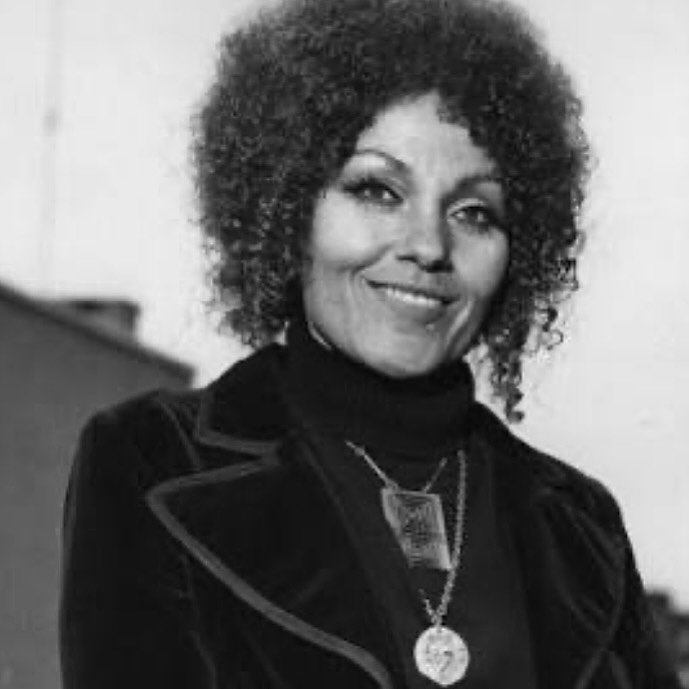The British music world stands in mourning following the passing of Dame Cleo Laine, the nation’s most celebrated jazz singer. Laine, famed for her powerful four-octave range and charismatic stage presence, died peacefully at her home in Wavendon on 24 July 2025, aged 97. Her legacy is immeasurable, spanning over six decades across jazz, classical, pop, and musical theatre. As tributes pour in from the UK and across the globe, it is clear Cleo Laine was more than a performer—she was a trailblazer whose influence touched every corner of the music industry.
Early Life and Cultural Roots
Cleo Laine was born Clementina Dinah Campbell in Southall, Middlesex, in 1927. Raised in a multicultural household with a Jamaican father and English mother, Laine’s upbringing deeply shaped her world view and musical identity. Despite facing the social adversities of her era, she developed a love for music early. Her father, a First World War veteran, was often seen busking in the local streets. These formative experiences not only inspired her musical direction but also grounded her authenticity and resilience.
Laine left school at 14, working in a variety of jobs before her extraordinary voice swept her into a career in music. Her big break arrived in 1951 when she successfully auditioned for saxophonist John Dankworth’s group. Their professional partnership would blossom into marriage and a creative collaboration that endured for decades.
A Career That Transcended Genres
Cleo Laine’s artistry defied easy categorisation. Best known for her rich, smoky tones and spellbinding scat singing, she captivated audiences around the world. Her talent saw her work alongside jazz greats like Ray Charles and Frank Sinatra, as well as musical icons such as Oscar Peterson and Ella Fitzgerald. Critics often called her Britain’s greatest jazz singer, with The Sunday Times in the 1970s hailing her as “quite simply the best singer in the world”.
Laine did not confine herself to jazz. Her command of classical music led to Grammy nominations in both jazz and classical categories, a rare feat for any vocalist. She interpreted the works of composers ranging from Kurt Weill to Arnold Schoenberg and delivered stand-out performances in opera and musical theatre. Laine made her mark in London’s West End and on Broadway, earning a Tony nomination in 1986 for her role as Princess Puffer in “The Mystery of Edwin Drood”.
Major Milestones and Accolades
Laine’s discography is as prolific as it is acclaimed. One of her most celebrated works, “Cleo at Carnegie: The 10th Anniversary Concert”, earned her the Grammy Award for Best Jazz Vocal Performance in 1986. She was Britain’s first jazz musician to be named Dame Commander of the Order of the British Empire in 1997, having previously received an OBE in 1979. Other honours included a Lifetime Achievement Award at the BBC Jazz Awards and honorary degrees from Cambridge, York, and Berklee College of Music.
The 1970s and 80s saw Laine and Dankworth regularly selling out New York’s Carnegie Hall. Their international tours elevated the profile of British jazz and demonstrated her universal appeal.
The Stables: Building a Musical Legacy
In 1970, Cleo Laine and Sir John Dankworth co-founded The Stables, a venue in Buckinghamshire dedicated to performance and music education. It remains one of the UK’s premier concert venues and a testament to their commitment to nurturing the next generation of musical talent. The venue has hosted international artists, students, and community outreach projects. Even after Sir John’s death in 2010, Laine remained deeply involved in its operations, performing and mentoring well into her eighties.
Personal Life and Continued Relevance
Laine’s family life was often intertwined with her music. She and John Dankworth had two children, Alec (a jazz bassist) and Jacqui (a singer), both of whom have achieved recognition in their own right. The couple’s enduring marriage was a source of inspiration, as was their dedication to artistic collaboration. Laine’s first marriage, to George Langridge, brought her son Stuart, who predeceased her in 2019.
Through her remarkable career, Laine broke barriers for women and musicians of colour in Britain. Her longevity, adaptability, and dignified presence left a lasting impression on peers and audiences alike.
Public Reaction and National Impact
The announcement of her death prompted an outpouring of tributes. Her children, Jacqui and Alec, released a heartfelt statement acknowledging their “beloved mother” and the impact she had on countless lives. The Stables described Dame Cleo as “a remarkable performer, loved by audiences around the world,” with artistic director Monica Ferguson reflecting on her “unique talent” that “will always be remembered”.
UK media, including BBC News and Sky News, celebrated her as a national treasure, highlighting her contributions to jazz and the wider arts. Musicians, critics, and public figures have lauded her technical virtuosity, her pioneering spirit, and her generous mentorship of young artists.
Conclusion
Dame Cleo Laine’s passing marks the end of an extraordinary era in British music. Her influence continues to resonate through her recordings, the careers of artists she inspired and mentored, and the thriving legacy of The Stables. Few artists have bridged genres and generations with such grace. As the world bids farewell, her music—timeless, evocative, and bold—remains as a reminder of what passion and perseverance can achieve.
In the words of a 21st-century reviewer, Cleo Laine possessed a voice that was “remarkable in range and control from bottomless contralto to a sweet clear soprano”. Her artistry, warmth, and willingness to push boundaries will inspire listeners and musicians for generations to come.
To read more click here

